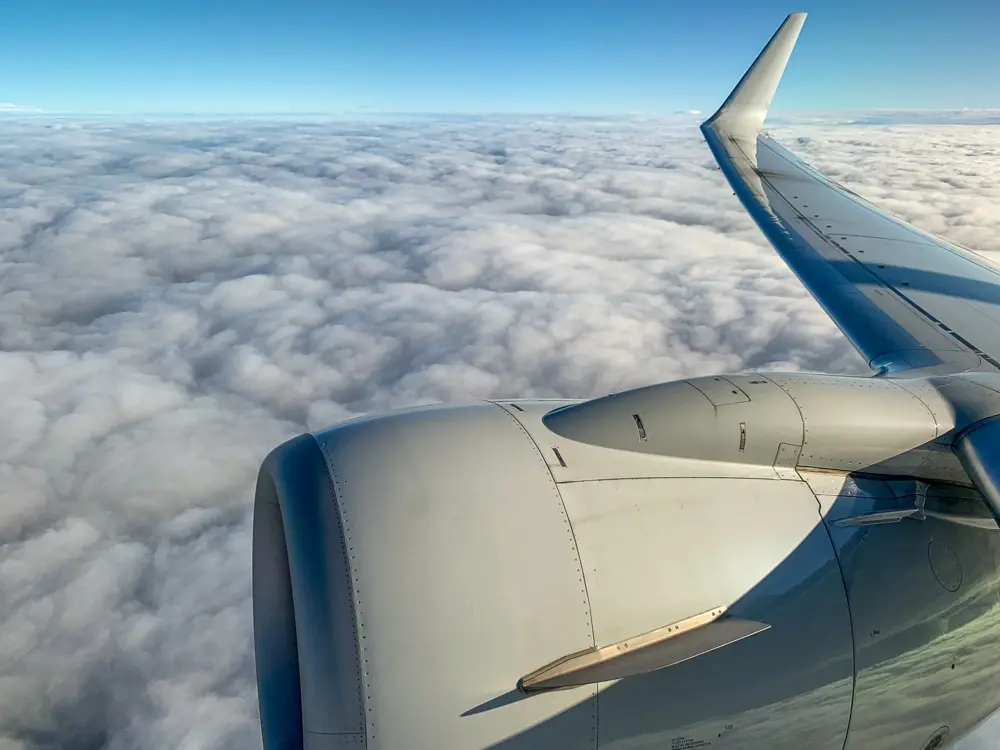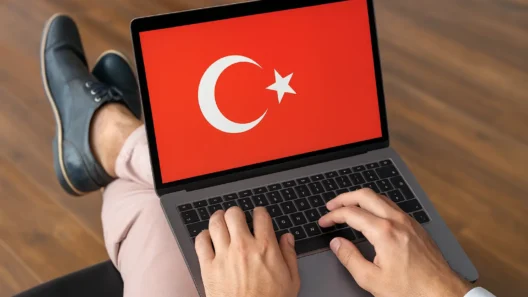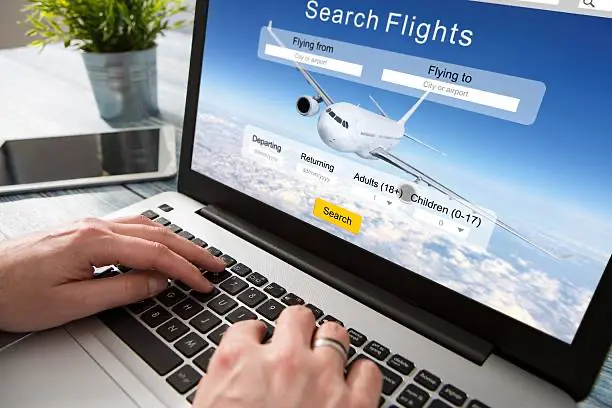Truth be told, even though I love planning and always have my itinerary color-coded, buying flights is never something I take lightly. Over the years, as I’ve hunted for cheap tickets across the world, I’ve gone through the “now or never” phase, sometimes overpaid, and sometimes hit the jackpot with a crazy good deal. And then there are the myths—let’s be real, who hasn’t heard that Tuesdays are always cheapest, or that the earlier you book, the better? Spoiler alert: it’s not that simple.
What I truly enjoy is mixing real data, personal experience, and a dash of travel luck—plus a few tech tricks I’m excited to share today. Because not every tip you see online actually works, but when you know what to look for (and how to work the system), you can find prices that even the savviest travelers would envy.
Why Do Flight Prices Fluctuate So Much?
If I had to list things that change faster than my Spotify playlist, airfare prices would be right up there. And that’s no accident—most airlines and flight search engines use dynamic pricing algorithms. Ticket prices are affected by:
- The number of seats left in each fare class
- How many people are searching at the same time
- Destination popularity
- Time left until departure
- Season and holidays
- Regional price differences (yes, this is where VPN comes in!)
Some of these systems are so smart, they’ll remember if you searched the same route yesterday and the day before. Suddenly, your price is a few dollars higher. That’s why I never forget to use incognito mode or a VPN—but more on that in a bit.

Data vs. Myths: When Is the Best Time to Book a Flight?
Let’s break down some of the most popular “truths” about flight prices—and see what the data and my own travel logs say.
Myth 1: “Tuesdays Are Always the Cheapest”
I’ve lost count of how many times people told me to always book on a Tuesday. The idea comes from airlines historically releasing sales on Monday evenings, with deals popping up on Tuesday. But nowadays, with dynamic pricing and global sales, that’s not a universal rule.
According to data from Momondo and Kiwi, the actual day of the week you book has very little effect on price—but flying on a Tuesday or Wednesday can be cheaper than peak weekend days.
My personal log backs this up: I booked a flight from London to Rome on a Sunday night for less than what my friend paid booking the same route on a Tuesday morning. What really matters is being flexible about when you fly, not necessarily when you book.
Myth 2: “The Earlier, The Better”
It sounds logical—book as soon as possible and get the lowest price. But this isn’t always true. According to a massive analysis by CheapoAir, the “prime booking window” for domestic flights is typically between 1 to 3 months before departure. For international routes, the best prices tend to show up 2 to 8 months ahead. Book too early, and you might be paying more—airlines often hold back the lowest fares until closer to the travel date.
Case in point: When I booked a flight to Bali 11 months ahead, I paid nearly $150 more than my friend who waited until four months before departure.
Myth 3: “Last-Minute Flights Are Always Expensive”
In most cases, this is actually true—especially for popular routes or high season. But, I’ve also scored a last-minute ticket from Paris to Barcelona for half price, simply because the airline wanted to fill seats.
This usually works for less busy times or destinations. If you’re flexible and a little adventurous, last-minute deals can be your best friend (just don’t count on them for Christmas in New York or Easter in Rome!).
Myth 4: “Prices Only Go Up”
There’s a real fear of FOMO with airfare. Sometimes, though, prices drop after a spike—especially if a competing airline announces a sale. I once watched a Tokyo flight fluctuate by $100 in three days! Tools like Momondo price tracker can help you spot these drops, and signing up for fare alerts or newsletters is a game changer.
Real-World Booking Windows for Different Destinations
I’ve learned the hard way (and sometimes the fun way!) that timing really does depend on where you’re flying. Here’s a quick summary, based on both travel industry studies and my own ticket purchases:
- Domestic USA/Canada: 1–3 months before departure is often ideal
- Europe (intra-European flights): 2–3 months ahead, except major holidays
- Asia: 3–7 months in advance for the best deals, especially for hotspots like Japan or Thailand
- Oceania: 4–10 months out, particularly for Australia and New Zealand
- Peak holiday seasons: Book as soon as possible—think Christmas, New Year, summer holidays
Remember, these are guidelines, not guarantees! There are always exceptions—like when a flash sale suddenly drops out of nowhere.
Scenarios: Best Booking Strategies for Different Travelers
For Families with Kids
If you’re planning a family vacation, you probably want stability and to avoid last-minute stress. I always recommend booking international family trips about 6–9 months in advance—especially if you’re targeting school holidays or popular destinations like Florida, Spain, or Australia. For domestic trips, 2–4 months is usually enough.
My tip: Use flight alerts (Momondo or Kiwi) and try to be flexible with dates or airports. Last year, I saved $320 on a summer trip to California by flying midweek and using an alternative airport.
For Students and Budget Travelers
Students have the best superpower: flexibility! If you can travel outside of peak holiday times, set up alerts for low seasons and consider last-minute deals. Airlines often have student fares or special discounts (especially in Europe and Southeast Asia).
I once grabbed a Bangkok–Phuket return flight for under $40 by waiting for a flash sale two months before departure.
For Solo Travelers and Digital Nomads
Solo travelers can combine flexible dates with creative routes. Try searching with wide date ranges (Momondo’s “cheapest month” feature is great!) and consider booking one-way tickets with different airlines.
I’ve even booked two separate one-ways from Tokyo to Paris via Kuala Lumpur and saved over $200 versus a traditional round-trip. Digital nomads: Always check visa rules if you’re booking one-ways!
For Business Travelers
With fixed dates, it’s all about speed and reliability. If your company pays, go for flexibility in ticket conditions instead of just price. But if you’re self-employed, set alerts as soon as a meeting is scheduled, and book once prices start rising.
How to Use Flexibility to Your Advantage
One of the most powerful tricks is being flexible with your travel plans—here’s how:
- Departure and Return Days: Flying midweek is usually cheaper than weekends.
- Alternate Airports: Big cities often have several airports; try all options!
- Open-Jaw Tickets: Arrive in one city, depart from another. Can be cheaper and adds adventure.
- Connecting Flights: Direct flights are convenient, but adding a layover can slash costs—especially for long-haul trips.
I once booked a multi-city route from New York to Rome with a return from Barcelona, which was $180 cheaper than a standard round-trip—plus, I got to see an extra city!
VPN & Price Differences: The Underrated Hack
If there’s one digital trick that keeps surprising me, it’s using a VPN to search for flights from different countries. Airlines and booking sites often display different prices depending on your location (sometimes by hundreds of dollars!).
How I do it:
- Turn on my VPN and select servers in various countries (I rotate between India, Singapore, Germany, and the US).
- Search in incognito/private mode to avoid cookies skewing results.
- Compare prices for the same route and dates.
Personal result? On a recent flight from Paris to Bali, I saw the price drop by $120 just by searching as if I was in Malaysia versus my home country. This doesn’t always work, but when it does, it’s magic!
| My 5 Best VPN for Travel | Offer + Discount | URL |
|---|---|---|
| NordVPN | 77% off + 3 months free | Try NordVPN |
| ExpressVPN | 61% off + 6 months free | Try ExpressVPN |
| SurfShark | 87% off + 2 months free | Try SurfShark |
| CyberGhost | 83% off + 2 months free | Try CyberGhost |
| PIA VPN | 82% off + 2 months free | Try PIA VPN |
Pro tips:
- Try multiple countries, especially where airlines are based or where living costs are lower.
- Always clear cookies or use incognito for each search session.
- Use reputable VPNs (I like ExpressVPN, CyberGhost, Surfshark).
Bonus: Using Alerts, Fare Calendars, and Refund Policies
- Set Price Alerts: Use Kiwi, Momondo monitor price drops.
- Explore Fare Calendars: These help you visualize the cheapest days at a glance.
- Check Refund/Change Policies: Especially important in a post-pandemic world! Sometimes a slightly pricier flexible ticket saves money if plans change.
Authoritative Sources and Further Reading
Final Thoughts: Smart Booking = More Adventures
The truth? There’s no single “perfect” time that works for every traveler, route, or season. But by understanding the patterns, busting the myths, and mixing in some digital hacks (hello, VPN!), you’ll save more—and travel more.
My best advice: Track, compare, stay flexible, and don’t be afraid to experiment. Your next adventure could be one search away!
I’d love to hear your flight booking wins, fails, and favorite tricks—drop a comment and let’s make travel smarter together!
FAQ: Best Time to Book Flights
Is it really cheaper to book flights on a Tuesday?
Nope, that’s a myth! While it used to be true years ago, recent studies (and my own booking history) show that the day of the week you book doesn’t have much effect. What matters way more is when you fly, not when you click “buy.”
How far in advance should I book flights for the best price?
For most domestic flights, I’ve had the best luck 1–3 months ahead. For international flights, I usually find deals 2–8 months before departure. For Christmas or summer breaks, book as early as you can—these seats really do fill up.
Can last-minute flights ever be cheaper?
Sometimes, yes! I’ve scored last-minute bargains on less popular routes, especially if airlines need to fill seats. But for peak seasons or major cities, waiting can mean paying way more. Flexibility is key here.
Do flight prices really go up the more you search?
They can! Some booking sites use cookies to track your searches and may bump prices if they see you checking repeatedly. That’s why I always use incognito mode (and sometimes a VPN) when I’m searching for flights.
How can a VPN help me find cheaper flights?
Airlines often display different prices based on your location. By using a VPN to “change” where you’re searching from, you can sometimes unlock lower fares—especially if you pick a country with lower average ticket prices.














